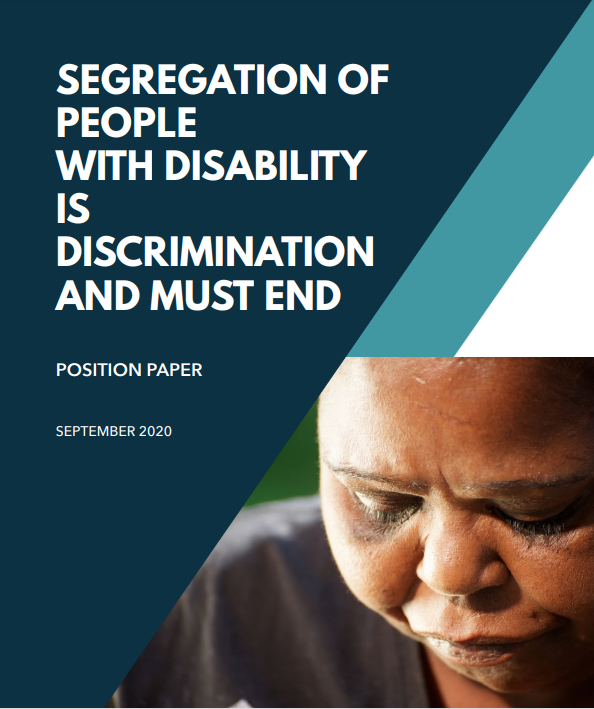Further to comments made by disabled leaders and disabled persons organisations about enhanced powers given to the Chair of the #DisabilityRC and the resulting distortion/disempowerment of other Commissioners, we add: 1/ @MarkDreyfusQCMP @SenCarolBrown
https://twitter.com/criprights/status/1537749213832171520?s=20&t=d-UKTM7kBMdyPNUNO-bnGQ
The original #DisabilityRC terms of reference were in 4 April 2019 Letters Patent & set out inquiry scope, 6 Comm'r & one to be Chair “AND We appoint you, the Honourable Ronald Sackville AO QC, to be the Chair of the Commission". Standard Letters Patent 2/ disability.royalcommission.gov.au/about/Pages/Te…
Important to note that of those 6 Commissioners appointed by the Morrison Government, only 2 were disabled - Dr Rhonda Galbally AO and Alastair McEwin AM former Disability Discrimination Commissioner - and trusted are trusted and respected disability community leaders 3/
This was immediately concerning as many in the disability community had wanted a disabled person to Chair and least a majority of the Commissioners to be disabled and trusted - and the importance of trust is precisely at the core of the issues with this #DisabilityRC 4/
The Morrison Government - which had agreed to the #DisabilityRC reluctantly at the 11th hour as an election loomed and under pressure by Labor and the Greens - proceed to establish an inquiry that, from the outset and by design, was perceived as sidelining disabled people 5/
Major concerns also arose about real & perceived conflicts of interest in the case of 2 Commissioners, one being John Ryan, a former NSW LNP politician and religious right ally of Scott Morrison who oversaw controversial disability programs in the NSW government 6/
On 16 August 2019 a comprehensive "Conflicts Statement" was issued by the #DisabilityRC with conflicts declarations from each Commissioner 6/ disability.royalcommission.gov.au/about/Pages/ma…).
The "Conflicts Statement" referenced Royal Commissions Act & stated that "There are well established mechanisms to enable Royal Commissions to handle perceptions of conflicts of interest or apprehensions of bias." In other words, existing powers sufficed to deal with concerns. 7/
On 13 September 2019, in the absence of consultation with the disability representative groups, the terms of reference were amended via Letters Patent to give the #DisabilityRC Chair significantly enhanced substantive powers, including over the disabled Commissioners. 8/
The Sept 2019 enhancement of Chair's power did not reference "conflicts of interest" and the statement from the #DisabilityRC 1 month prior had clarified no further powers were needed - so what or who prompted this unusual step? Were the other Commissioners consulted about it? 9/
The 13 September 2019 amendment to Letters Patent added the following to the Terms of Reference: 10/ 

The Chair was expressly "authorised to give binding directions to, assign duties or functions to, or restrict the duties or functions of, other appointed Commr's." What is the impact of this change on the capacity of other Commr's to effectively carry out #DisabilityRC ToR? 11/
Approximately 1 month later, in October 2019 @SenatorJordon broke the news Sr Counsel Assisting Michael Fordham SC & Chris Ronalds AO SC had resigned from #DisabilityRC. It is unclear whether changes to ToR were behind these high profile resignations 12/
https://twitter.com/senatorjordon/status/1185087797058662403?s=21&t=hw1XsI1E9fRJLK3rlO066A&fbclid=IwAR2SU43LoNaIXC68g0dpoQZ6lTzdbNYKA6nYprag8oV9raoC9CPrQQUKxRw
The Morrison Government has never explained these significant changes to #DisabilityRC Letters Patent. We are not aware of such enhanced powers being granted in the Aged Care or Child Abuse RCs. 13/
Their purpose has never been explained and we know they were not necessary to address the concerns that had arisen about conflicts of interest - indeed the enhanced powers do not refer, & are not limited, to dealing with conflicts - they are expressly broadly. 14/
What is the implication of this significantly enhanced role and status of the Chair, formally and informally? Does in diminish the capacity and influence of the 2 disabled Commissioners in the conduct of this #DisabilityRC? 15/
A wide range of significant concerns have emerged about the way this #DisabilityRC is being conducted, most importantly, disabled people fought for it for 20+ yrs and do not feel heard, do not trust in what is occurring. The new government must urgently turn its mind to this 16/
The new government and the Attorney General need to hear from the disability community and its representative organisations about their questions and concerns about the #DisabilityRC and how they should be addressed. 17/
The disability community is entitled to a proper robust inquiry, led by a disabled Chair, not a paternalistic endeavour where they are mere subject matter. They are entitled to process with the principle of "Nothing About Us Without Us" at its heart & embedded in its design 18/
We hope that the Attorney General will look closely at these matters and consult with the disability community as a matter of urgency. 19/
• • •
Missing some Tweet in this thread? You can try to
force a refresh








